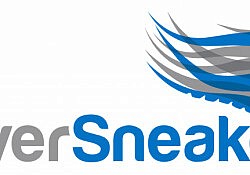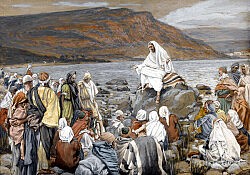Intro to Hebrew Bible Wednesday night
Posted by Rev Roger
Posted on November 14, 2020
your advance study guide from Keith Atwater (keith@uuss.org)
Nov. 18, 7:00-8:30 PM through this Zoom link:
uuss.org/online
Wellspring Wednesday : A Bible Study for UUs (part 1)
Bible Study 101: Valuable Information for Serious Students
taught by Keith Atwater, American River College
* Click here to download this guide as a PDF *
worksheet / discussion topics / study guide
 1) Meeting Your Bible
1) Meeting Your Bible
What is your Bible’s full title, publisher, & publication date?
Where did you get your Bible? (source, price, etc.)
What’s your Bible like? (leather cover, paperback, old, new, etc.) Any Gospels words in red?
What translation is it? (King James, New American Standard, Living Bible, New International, etc.)
Does your Bible include Apocrypha?( Ezra, Tobit, Maccabees, Baruch) Preface? Study Aids?
What are most common names for God used in your edition? (Lord, Jehovah, Yahweh, God)
The Bible in your hands, in book form, with book titles, chapter and verse numbers, page numbers, in a language you can read, at a reasonably affordable price, is a relatively recent development (starting @ 1600’s).
A Bible with cross-references, study aids, footnotes, commentary, maps, etc. is probably less than 50 years old! Early Hebrew (Jewish) Bible ‘books’ (what Christians call the Old Testament) were on 20 – 30 foot long scrolls and lacked not only page numbers & chapter indications but also had no punctuation, vowels, and spaces between words! The most popular Hebrew (Jewish) Bible @ the time of Jesus was the “Septuagint” – a Greek translation. Remember Alexander the Great conquered the Middle East and elsewhere an “Hellenized’ the ‘Western world.’
2) Discussing the Bible (breakout rooms for 10 minutes. Choose among these questions; each person shares 1. One bullet point to be discussed, but please let everyone say something!)
· What are your past experiences with the Bible? (e.g. family, school, church, Bible in our culture)
· What are your pre-conceived notions, misconceptions, or overheard claims about the Bible?
· What have you wondered about or wanted to know more about the Bible?
· If time, turn to Psalm 23 & read aloud & compare a few lines from several different translations
3) Discovering the Hebrew Bible’s Contents
Compare your Bible’s Table of Contents side by side with the Hebrew / Jewish Bible (Tanak) below
Torah (“Law – teaching” also called Pentateuch (1st Five Books) and called “Books of Moses”:
Genesis, Exodus, Leviticus, Numbers, Deuteronomy
Nevi’im (books of the prophets):
Joshua, Judges, 1-2 Samuel, 1-2 Kings, Isaiah, Jeremiah, Ezekiel, 12 minor prophets (Hosea, Amos, Micah, Joel, Obadiah, Jonah, Nahum, Habakkuk, Zephaniah, Haggai, Zephaniah, Haggai, Zechariah, Malachi
Kethuvi’im (writings):
Psalms, Job, Proverbs, Ruth, Song of Solomon, Ecclesiastes, Lamentations, Esther, Daniel, Ezra Nehemiah, 1-2 Chronicles
4) Investigating the Hebrew Bible’s Sources, Formation, & Editing
brief history of the Middle East and the “people of the Book” (Canaanites, Hebrews, Israelites, Jews)
summary of major theories by scholars (Wellhausen’s Documentary Hypothesis and others)
list of biblical literature (laws, genealogies, short stories, history, wisdom, poetry, prophecy, apocalypse)
5) Sharing a few Hebrew Bible verses (infamous, inspiring, controversial, UU friendly – I’m open to suggestions!)
Torah laws (Exodus – e.g. 10 Commandments, Levitical laws (e.g. kosher) and our USA
Prophets (Micah, Amos, Isaiah & others), politics, and our USA
Philosophy (Job, Ecclesiastes)



Sorry, the comment form is closed at this time.